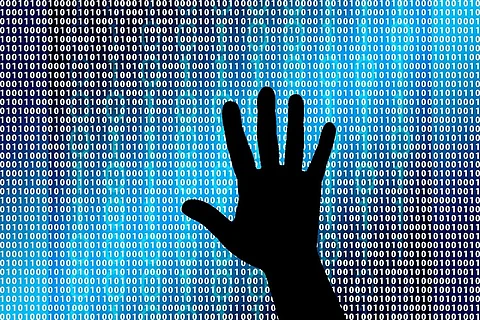

“Knowledge and training are what we need the most now. Most of our staff does not even know the basics of cyber crime investigation,” was the response from an official attached to the Cyber Crime wing of the Chennai City Police when asked about their ability to handle the increasing cases of cyber crimes.
As cyber crime complaints keep pouring in, the policemen attached to the Cyber Crime wing stick to conventional policing methods and get some relief for the victim, but most of these cases are never registered.
This is the status of a ‘sophisticated cyber crime wing with a cyber-lab’ attached to the elite Chennai City Police Commissionerate. The city police had set up a cyber-lab in 2009, spending Rs 70 lakh to purchase intervention and retrieval tools. But the fact remains that none of the personnel attached to the wing got training to handle these tools since the lab’s inception. Also regular transfers in the wing meant that even those who had learnt something while working on these tools did not get to remain in the wing.
According to sources in the wing, the cyber-lab had four sub-inspectors who had learnt something about handling the forensic tools, but they were transferred out. Now the lab has only four personnel in the rank of constables to do the work and a request for four sub-inspectors by the wing heads has been turned down.
“We seek help from private sector experts to come and help us when we need to run some of the forensic programmes. This has been going on since the inception of the wing,” a police officer attached to the Cyber Crime wing, on request of anonymity, said.
The Cyber Crime wing gets more than 300 complaints in a month and more than 40 per cent of it is regarding crimes related to social media. Cyber-stalking, cyber-bullying, publication of objectionable or derogatory content on social media sites are some of the most common complaints.
“Most of these complainants hardly get any relief legally. Social media giants like Facebook or Twitter refuse to share any information regarding the complaints, so we drop our cyber crime tag and become the conventional policemen to get some relief for the complainants,” another official attached to the wing says.
When the Cyber Crime wing writes to Facebook or Twitter, they seldom get a response. “Sometimes they ask us to come through the Mutual Legal Assistance Treaty (MLAT). It is a very cumbersome process as we have to forward the complaint through the state nodal agency CB-CID to CBI to Home Department to External Affairs Ministry, and then to the chain of agencies in the respective countries. The companies know that we may not try such a complicated route and refuse to share the details,” the official adds.
According to a recent report, Facebook has reportedly admitted to having about 270 million fake or clone profiles across the world. So an ill-equipped Cyber Crime wing sitting in a corner of the ‘third world’ has little or no means to verify the ‘abuser’ online and many such online bullies were proved to be bogus.
“Our conventional policing works only if the profile is a genuine one. We trace the abuser and warn them. So in most cases, they seek pardon from the victim and case is settled outside. But when the profiles are fake, there is very little we can do,” the official says.
Cyber-bullying on Twitter is even more complicated to trace. Officials say the Twitter profiles have limited information about the user and tracing such users is near to impossible.
“These are the difficulties we face on a day-to-day basis while handling social media related complaints. There are about 18 popular social media platforms and we are familiar with only three or four. But when it comes to other cyber crimes like phishing or cheating, we lack the tools to crack the case,” another official said.
When the going got really difficult, the city police purchased one tool for imaging and one for easy access to Call Detail Records, spending Rs 10 lakh. These tools will help the wing to remotely image or clone the desktop of a person under surveillance when the system is online, and the other tool helps the police with CDR recovery faster.
“Our purchase is made based on the limited knowledge we have about such forensic or investigative tools. Unless we get exposure, we do not know what would be the actual products we should try to acquire,” the official says.
Situation worse in districts
Apart from the Cyber Crime wing attached to the Central Crime Branch of Chennai City Police, each of the 12 police districts in the city has a Cyber Crime unit, which restricts its work only to mobile tracking and location analysis.
“They do not even know what crimes could be classified as cyber crimes. They work as the back-up system for crime investigation teams but are not in coordination with the Cyber Crime wing,” the official added.
At present, the Chennai City Police Cyber Crime wing has two assistant commissioners of police, four inspectors, six sub-inspectors and 28 other staff. An additional commissioner of police in the IG rank has been given the overall charge; under him, there are two deputy commissioners and two additional deputy commissioners.
“What we request the government is to augment our strength, to have a dedicated trained workforce and necessary forensic tools for better detection of online crimes. There was only one training programme held since its inception and that tells you the story,” another Cyber Crime wing official said.